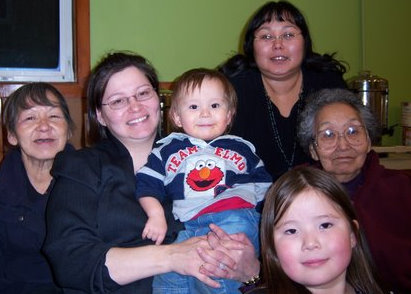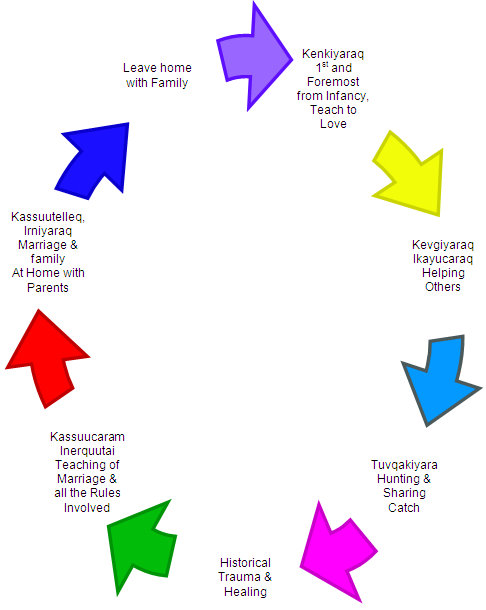Healthy Families Sessions
Traditional Yup’ik Parenting
Location: Tundra Women’s Coalition (TWC)
Mondays at 5:30 PM – 7 PM
Everyone is invited to attend.
Childcare is provided.

Mikelngiuryaraq Ullagturluku
“Following the Path of Raising Healthy Children”
Traditional Yup’ik Parenting Follows this Cycle

FAMILY – is where our world begins. It is where we learn to be human. Our deepest values and beliefs, our sense of right and wrong, begin in our families.
YUP’IK – (lit) A real person. It is where we learn to talk, think, feel, behave and how to treat others and the world around us in the ways of our people and culture. Our childhood experiences from our grandparents, parents, brothers, sisters, relatives and other people in our “first family” mold us into who we are. This is the foundation for our life and our identity.
Traditional Parenting/Traditional Childrearing Practices
Our Yup’ik traditional child welfare system taught everyone healthy parenting skills. We have our own system in place that is an effective system of “positive” development for every Yup’ik person.
It is a system that strongly believes in the importance of families, children and community. It considers childrearing to be a sacred responsibility in which children are not owned, but a gift on loan from the Creator. As such, they are treated with great respect and consideration.
Our cultural teachings on child rearing are based on the belief that: Learning started before birth. The mother shapes the child’s emotions and transfers feelings of love, caring and compassion to an unborn child with the support of the husband. He observes the same rules and rituals for a healthy pregnancy. The child is a separate spirit being affected by the mother’s actions, behavior, state of being and thinking.
All adults serve as teachers. Our kinship system allows our children to develop within a network of caring adults. Children learn by observing adults and others around them
The system made sure that children had good self esteem built by patience, kindness, lecturing, cultural celebrations of birth and growth and the belief that children responded to positive nurturing as they can not be made responsible by force of will. Rather that they learn self control and restraint taught by actions to distract or songs to sooth and stories to serve as entertainment and teaching lessons. They learn that wisdom came from listening and observing. Stories and cultural ceremonies taught ways to behave appropriately and shaped how one views the world and their place in it.
Much of our generation learned parenting skills in institutions (boarding schools) or other forms of abusive or dysfunctional situations. We rely on our elders to learn and remember our healthy childrearing practices.

